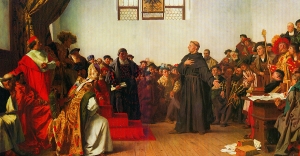XII. Faith is not true because it perseveres, but it perseveres because it is true. Thus perseverance is not the cause of the verity of faith, but the consequent and the effect—for because it has solidity and a deep root in the . . . Continue reading →
With The Presbycast On The Federal Vision
The self-described “Federal Vision” has been with us, in its most recent incarnation, since about 1974, when Norman Shepherd began to teach that we are justified through faith and works. That’s right. A professor of theology, in an ostensibly confessional school, openly . . . Continue reading →














